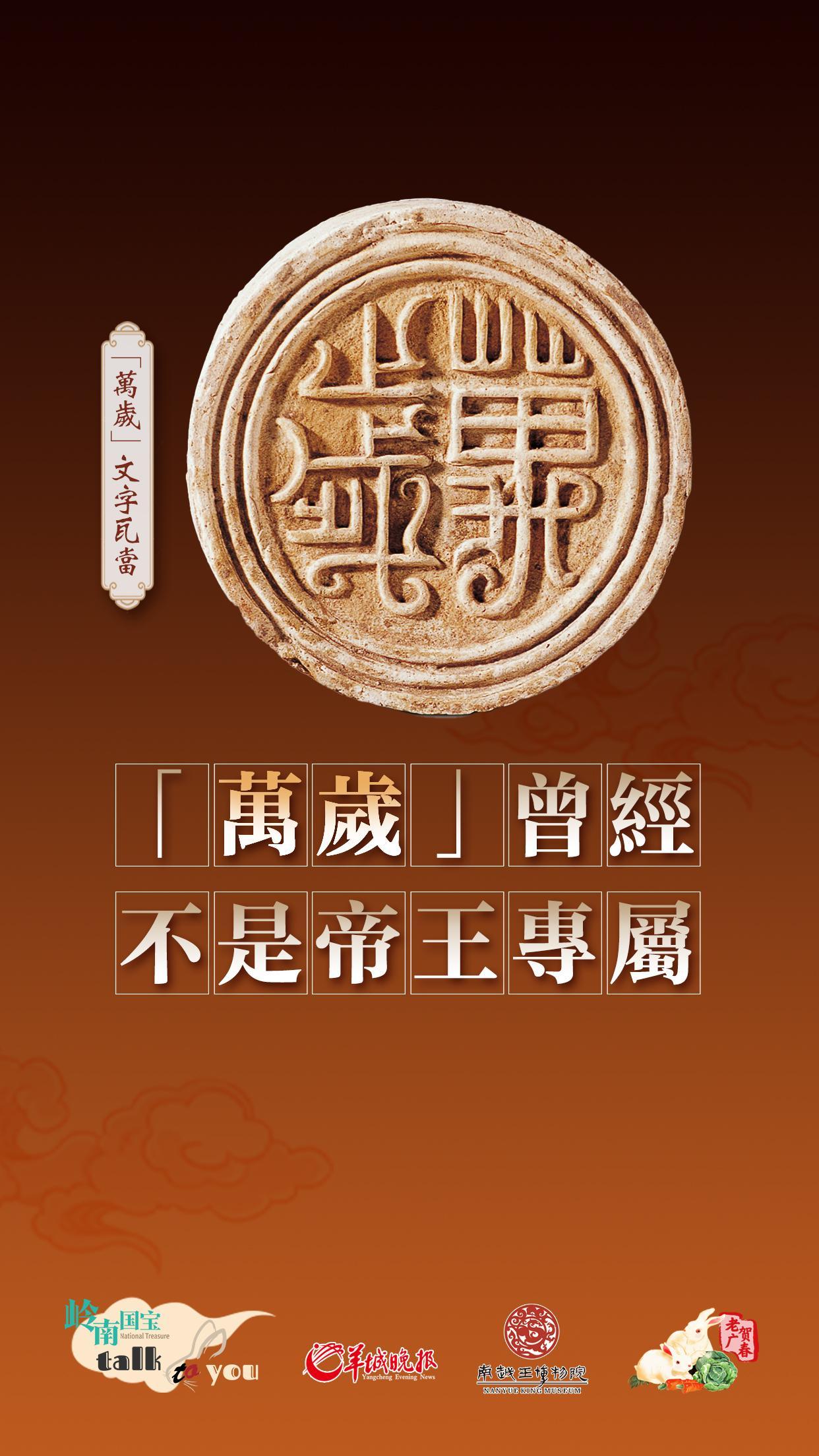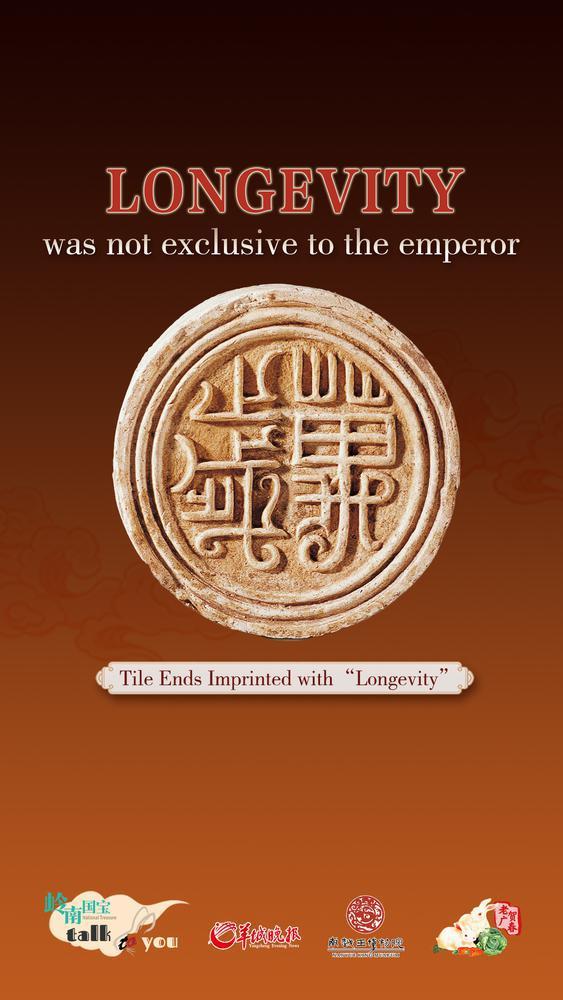「萬歲」常被認為是中國古代帝王的專有名詞。但你知道嗎?「萬歲」一詞,曾經並不是帝王專屬。在漢代及以前,「萬歲」寓意長壽,也是一種歡呼時發出的呼喊。在南越國宮殿和禦苑遺跡,出土了大量「萬歲」文字瓦當。瓦當是古代建築物屋檐頂端的片狀瓦頭,主要功能是防水、排水,保護木構的屋架部分,延長建築物的壽命,同時也使建築更加美觀。雖然「萬歲」曾經可以為百姓所使用,但瓦當在古代只能應用在宮殿、官署、寺廟等級別較高的建築之上。
點擊視頻,感受一磚一瓦從歷史深處給予的祝福。

Chinese people are familiar with "万岁" ("longevity" or "long live"), which is considered exclusive to ancient Chinese emperors. In fact, dating back to the Han dynasty and before, "万岁"("longevity" or "long live") could be used by civilians for its literal meaning of longevity.
A large number of tile ends imprinted with different styles of "万岁"("longevity" or "long live") were excavated from the relics of the Palace of the Nanyue Kingdom. In ancient China, tile ends served as the protection of wood roofs by resisting and draining water
"万岁" ("longevity" or "long live") could be used by civilians, while tile ends were used only in high-level buildings such as palaces, government buildings, and temples.

出品|羊城晚報南越王博物院
總策劃|杜傳貴 林海利
副總策劃|孫愛群
統籌|蔣錚
執行統籌|付怡 何奔
文案、翻譯|付怡
海報|李煥菲
視頻文案、翻譯|付怡
視頻拍攝|周巍 賀全勝
視頻製作|戚容源
視頻加工|曾瀟




